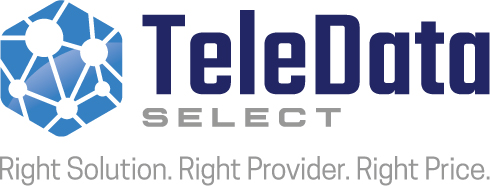We have been fielding a lot of inquiries lately around Call Center. What is it and why would a business need one?
Coming from an IT background, I find it is best to start with a simple definition to make sure everyone is on the same page. Call Centers in this context are cloud software solutions that manage inbound and/or outbound calls. More importantly, it is good to know what a Call Center does. The basic purpose and function of the platform is to allow a company or organization to extend support to customers for their inquiries, and to serve as a help desk for customer issues. A good call center is set up to clear the way for customer communication with your company.
Some of the features that make a call center useful are:
An Automatic Call Distributor (ACD) is considered to be the backbone of a call center. It is the software that routes incoming calls to the most appropriate agent. An ACD also acquires usage data such as call volume, calls handled, call duration, wait time, etc. They also allow for managers to engage in call monitoring, call conferencing, call barging and whisper coaching. Thus, ACDs are essential for any call center.
An Interactive Voice Response (IVR) is a telephony menu system that identifies, segments and routes callers to the most appropriate agent, department, waiting queue or pre-recorded message. In a typical IVR scenario, a caller first hears the IVR greeting and is then asked to choose from a series of prompts (e.g. “Press 1 for Sales, 2 for Support…”). The caller is then routed to the most appropriate team member or waiting queue based on their selection. Thus, IVRs are great for call centers that have unique teams or field different call types.
Call Queue Functionality are a common feature where callers are put into a waiting queue when all agents are busy. Most call center software solutions will allow managers to configure unique call queues for each department, agent, team or tags assigned to agents for skills-based routing purposes. Agents who have access to metrics in their dashboards can view call queue statistics so they can make informed decisions based on real-time data. Thus, call queues are essential for any team seeking to optimize their performance.
Business Tool Integration is an important part of a useful Call Center software solution is the ability to integrate with business intelligence tools to provide comprehensive information about callers. The most common business tools to integrate with are CRMs, helpdesks, ecommerce platforms, marketing software and chat systems. Once integrated, the call center software will display the caller’s previous purchase history, phone calls with the company, chat transcripts, voicemails, notes, cases, support tickets, etc. With two-way synchronization of data, when an agent updates information about the customer in one business tool (i.e., their contact information, closes a support ticket, updates a case or writes a note), the information will automatically be added to all integrated business tools. Business tools integrations allow agents to provide better service, streamline workflow and eliminate the entering of redundant information into multiple systems.
Call Control refers to basic call handling functionality such as hold, mute, conference, transfer and hang up. Software based Call Center solutions can have call control functionality entirely in a browser, so call center agents can place callers on hold or transfer calls with a click of a mouse.
Computer Telephony Integration (CTI) is a software package that adds call center telephony features to a call center agent’s desktop. Usually, the only additional cost is a USB headset. No new telephone equipment is required. Besides being a low cost solution, it is a quick way to enable remotely based customer agents to perform their jobs.
Call Center Monitoring and Analytics are essential features available in most Call Center solutions. Being able to scrutinize call durations, costs, and other useful metrics can help supervisors and managers make informed decisions on issues such as employee performance and staffing and training needs. Some of the best systems allow real-time statistics, letting you know what’s going on in the call center second by second. Historical reporting allows you to compile hourly, daily, weekly, monthly, and annual statistics for detailed long-term analysis.
Quality Assurance Tools are built into most Call Center Software. Their goal is to assure a good customer experience. Call Monitoring allows managers to listen in on live calls without the agent or caller knowing. Call monitoring is great for making sure that newly hired agents are up-to-speed and for keeping an eye on the performance of an entire team. Call Barging allows managers to drop in on live calls to speak with both the agent and the caller. This call center software feature is helpful when callers ask that their call be escalated to a manager and to optimize agent training. Live Call Coaching allows a third person to interact with an operator without the caller hearing, thereby enabling training and mentoring. Call Recording is useful for training and monitoring, call recording allows supervisors and operators to record and store phone calls as audio files on the server.
Conference Calling is a helpful feature that allows dispersed teams to collaborate effectively. Call conferencing allows three or more people (i.e., callers, agents, managers, etc.) to talk with each other. This feature eliminates the hassle of transferring calls to another department when addressing more complex issues.
Voicemail allows callers to leave a message for an agent, department or company when they are not available. The latest Call Center software solutions offer Voicemail Transcription which transcribes the voicemail and stores it in the caller’s activity feed. They also automatically provide Notification to relevant agents and managers via an email with the voicemail transcription. Voicemail, voicemail transcription and notifications help keep entire teams in the loop, no matter when their customers call.
A Predictive Dialer call center software that can be invaluable to outbound sales teams. A predictive dialer enables a list of phone numbers to be called simultaneously. Operators are connected only when someone picks up. These systems can save a lot of time and prevent operators from having to wait for a call to be answered. Predictive dialers also monitor the availability of operators to ensure that calls aren’t made when there are no operators available to route the call if someone answers.
Click-To-Call is a call center software feature that allows agents to click on any phone number within any business tool or website to make a call. Click-to-call works in call center software, CRM, helpdesk, Salesforce, ecommerce platform, marketing software and any website with a phone number. Click-to-call makes it simple for agents to place outbound calls and eliminates the hassle associated with dialing the wrong number.
Real-time Reporting displays call center metrics in real-time in an agent and manager dashboard. These metrics often include service level, number of calls in queue, average abandonment time, longest wait time, etc. Real-time reporting is invaluable for agents and managers in making informed decisions based on up-to-date information.
Historical Reporting displays call center metrics from any defined time point in the past. These metrics often include call volume, service level, handle time, abandonment time, wait time, etc. Historical reporting is essential when making staffing decisions, scheduling agents and assessing the performance of agents, teams, departments and the call center as a whole.
Technical Support is not quite a feature of Call Center Software but extremely important in making the most of your call center solution. Competent and responsive technical support needs to be a decision point when selecting a Call Center vendor. For Premise and cloud based systems, technical support can be anywhere from nonexistent to extremely generous. It is important to have a clear understanding with your Call Center Software vendor to see what is available. References and software reviews should be checked to see how well the vendor lives up to their support agreements.
As with any software platform, features that make up Call Center service platform are continually changing with new features are always being added. As I always recommend, look at your business model first. Understand where you are at and where you want to be. This knowledge is invaluable as you investigate new technologies that may be able to help you to reach your goals.
Teledata Select offers a whole range of services that will help you meet your business goals. Starting with a complimentary review of your current telecommunication bills to identify errors and find opportunities for savings, better service and more functionality. We also offer project management for new service implementation and infrastructure installs, including fiber and low voltage cabling. Call us at 404-257-1502 to discuss your current Telecom Service Solution and what you would like to get out of it. Or send us a note via This Link to start a no obligation discussion of your specific business technology needs.

© Karen Images 2016
Don Miller is a PMP certified Project Manager splits his time between Atlanta and Seattle. He has come to Teledata Select via Seattle, New York and Washington DC. His experience running small to multi-million dollar projects in the Banking, Software, Telecommunications and Insurance Industries across the US has given him a wide range of business




0 Comments